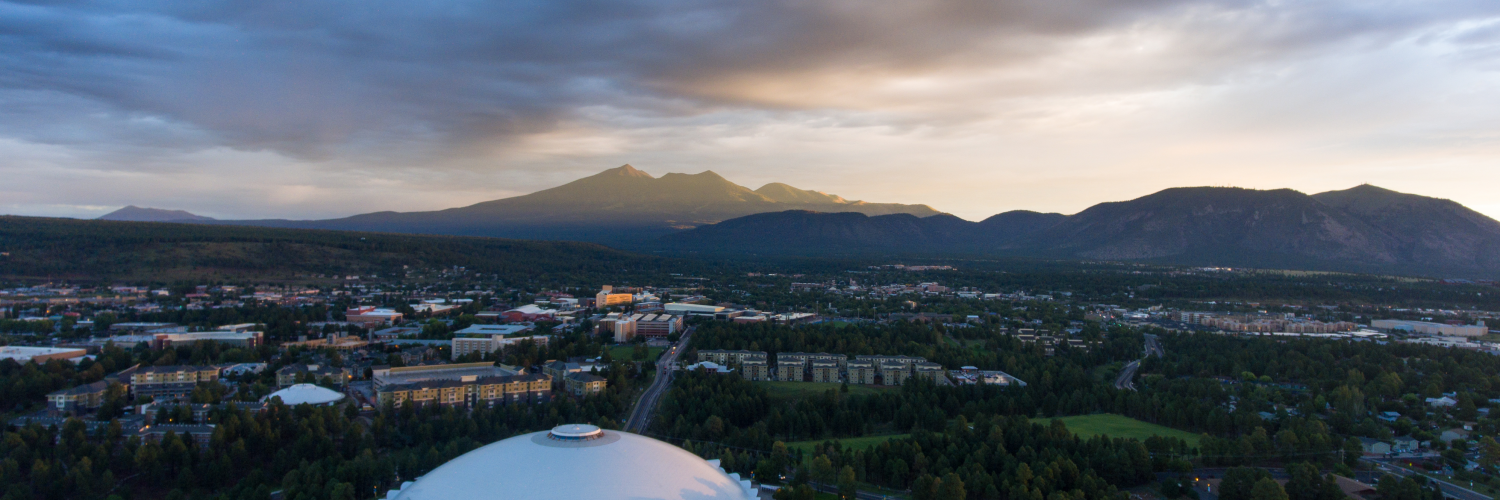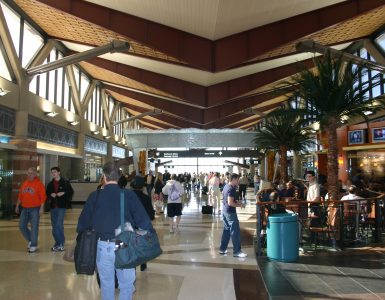Northern Arizona University (NAU) — a $2.4 billion economic engine for the state — is focusing on flexibility and tackling the coronavirus as it gears up to open its campus in the fall to prepare another class of students for the new economy.
Last month, it launched a new COVID-19 testing center to grow the virus and test new drugs against it. And later this summer, it’s hosting an infectious disease boot camp.
When the campus reopens, there will also be a heavy emphasis on virtual education options for students, NAU President Rita Cheng told Chamber Business News.
“It’s imperative that we get kids educated, and particularly in this economy that we’re facing and the recovery,” Cheng said. “We’re all looking at flexibility. That’s the key. We can’t predict the future. We can only stay as flexible as possible.”

That flexibility enabled the university to graduate the largest class ever last semester. The faculty and staff made a “heroic” effort to pivot to a virtual format last semester and it paid off, Cheng said. The school graduated about 6,000 students.
“NAU has passion. Our mission is to shape and build lives and we continued on and that was something that kept us grounded during this really incredible disruptive event,” Cheng said.
Campus reopening with lots of virtual options
To keep the momentum going, the university will emphasize digital options for in-state, out-of-state and foreign students when the campus reopens.

“For students that may not want to come right away to campus, we’re going to have a digital experience for them. They can Zoom into a classroom virtually,” Cheng said. “Or if a student is ill or feels that they may not want to be exposed to other groups of students on a particular day, they can Zoom in as well. We’re going to make it as flexible as possible but still have that campus experience.”
Possible early start and end time
University officials also are exploring an earlier start time so that it can end the fall semester by Thanksgiving, Cheng said. Flexibility will be key.
“If we have to go virtual for a few weeks at any given time, we will,” she said. “We can’t predict this virus. We can only do risk mitigation as we go along.”
The school is implementing strict health and safety protocols to continue to attract and retain out-of-state and foreign students.
“In some ways the size of NAU and its remoteness is a benefit for those who are coming from afar,” Cheng said. “This is a relatively safe place to be. We’re going to be taking temperatures, wearing masks and being physically distant. We’re a Lumberjack family and we take care of each other.”
Medical and public health students take on the coronavirus
With a host of strong healthcare programs including nursing, physical therapy, physician assistants, occupational therapy, and public health, students became an integral part of the frontline defense against the virus last semester, Cheng said.
“Students were on the frontline and did not stop what they were doing in helping in their rotations and when their rotations ended, they volunteered in the hospitals and in the health care organizations,” she said.
Public health faculty and students also have been doing contact tracing and modeling of the coronavirus in the county and have worked side by side with epidemiologists. Contact tracing is considered an effective tool in the arsenal to fight the disease’s spread. Individuals work with infected patients to discover everyone they had contact with who may have been exposed.
To take the race against the virus even further, the university is launching new programs including a new COVID-19 testing facility and an infectious disease boot camp.
Infectious disease boot camp opening this summer
An infectious disease boot camp, a course scheduled to launch later this summer, will be designed to inform those working in healthcare and public health as well as others interested in the subject.
“We have seen the need for increased knowledge in this area and look forward to expanding both the expertise and interest of people to take care of themselves and others,” Cheng said.
New COVID-19 testing center on campus
NAU also launched the new COVID-19 Testing Service Center to grow the virus and test new drugs against it. By repurposing its existing biodefense research infrastructure for the new testing facility — labs rated at Biosafety Level 3, one of the highest levels of biocontainment — the institute is dedicating much of its significant research capacity to fight the pandemic.

The testing is being conducted at the Pathogen and Microbiome Institute (PMI) on the Flagstaff campus in conjunction with the research institute, TGen. NAU built the PMI labs in 2008 to enable researchers to handle dangerous pathogens, including research on anthrax, Valley Fever, and other diseases such as plague, West Nile virus and Zika virus, with an emphasis on developing new diagnostic tools, therapeutics and vaccines.
“The COVID-19 pandemic is a crisis that requires the whole scientific community working together to find fast, cheap, and effective solutions to the problem. Our ability to redirect the PMI BSL-3 facilities to COVID-19 research is a small but important part of the nation’s path forward,” said PMI Executive Director and Regents’ Professor Paul Keim, a world expert in pathogens. Keim worked with the FBI to crack the “anthrax letters” case in the wake of 9/11.
The first therapeutic agent being tested against the virus is the promising cancer drug 2X-121, developed by the Danish firm Oncology Venture, which recently signed a joint research agreement with PMI and NAU to evaluate it.
Although highly-trained staff members will conduct much of the research with the virus, undergraduate and graduate students will be involved in supporting roles.
University powers state’s economy
NAU is the largest employer in its home town of Flagstaff and has become a beacon for the region’s growing research and development industries in science and high tech. It’s economic impact affects not only Northern Arizona, but the rest of the state.
NAU’s Economic Impact
To Arizona: $2.64 billion and over 24,000 jobs
To Coconino County: $1.96 billion and over 9,500 jobs
To Maricopa County: $189 million and over 1,500 jobs
To Yuma County: $21 million, more than 200 jobs
All other counties: $111 million, over 900 jobs
In state and local taxes: $185 million
Source: Alliance Bank Economic Policy Institute
















Add comment